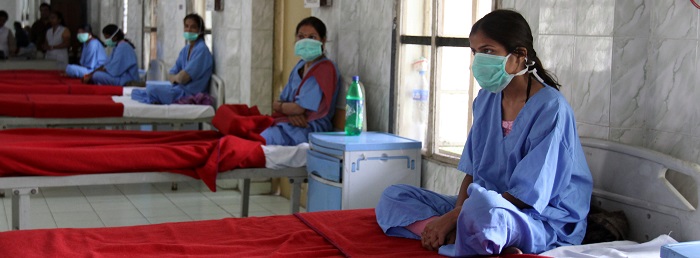
Task Force on NGS and DST
Integration of next-generation sequencing and updated guidance to test developers on next-generation DST in alignment with new treatment guidelines and future drug regimens
NDWG priority addressed
Enable timely and effective treatment to reduce mortality and ongoing transmission, and prevent antimicrobial resistance by ensuring universal access to DST.
Required tests: Rapid and simple tests for detection of drug resistance in decentralized settings for existing and future drugs, as well as tests to assess response to therapy and cure.
Background
Existing molecular diagnostics provide limited and often insufficient information for guiding clinicians in the selection of the most effective drug regimen for TB treatment. Improvements in sequencing technologies make it possible to determine the DNA sequence of a complete bacterial genome in a few days at an affordable cost. As a result, these data provide relevant information on resistance virulence and typing in a unique assay. While updates in WHO treatment guidelines call for new molecular DST assays, a review of the TPP on next-generation DST at peripheral levels is urgently needed to guide test developers. Increasing relevance of next generation sequencing in determining the specific mutations associated with resistance contributes to generate new data enabling to assess the alignment of the current TPP with the latest treatment guidelines for drug-resistant TB, including prioritization of anti-TB agents for testing.
Goal and Objectives
Convene key experts and stakeholders representing the TB diagnostics and TB drugs communities to enable knowledge sharing towards the development of consensus-based resources using NGS data as follows:
- Reporting and sharing of data from ReSeqTB and Cryptic projects;
- Evaluation of data applicability to DST and use of the findings to support WHO policies for interpretation of drug resistance in low-income countries;
- Release updated version of the high-priority Target Product Profile (TPP) for next-generation DST at peripheral levels;
- Support communications and advocacy to improve broad understanding of the benefits of NGS in TB diagnosis



